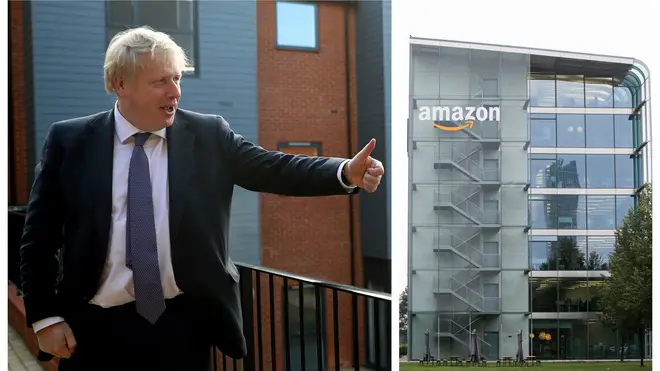
Oli Dugmore 4am - 7am
4 December 2019, 09:44

Boris Johnson is determined to make global tech giants pay more tax in the UK, despite a similar move in France intensifying a trade war with the US.
The Prime Minister has pledged to stick by the Tories’ election commitment to implement a "digital services tax" to ensure major multinational companies, such as Google, Amazon and Facebook, pay their "fair share".
But after the French government sought to implement similar measures, the US threatened 100 per cent tariffs on French cheese, Champagne and other products, a move described by France as an attack on all of Europe.
The country argued its measures are aimed at "establishing tax justice" and seek to deal with a problem in which an overseas company can pay most of its taxes in the one EU country it has a regional base, which tend to be in smaller countries which try to attract multinationals with low corporate taxes.
The proposed tariffs by the US would be on 2.4 billion dollars (£1.8 billion) of goods.
Mr Johnson, speaking to reporters during a campaign visit to Wiltshire, said: "Obviously I deplore, I don't think trade wars are a good thing.
"One of the things the UK is going to do is campaign for - when we take back control of our tariffs, which we will on January 31, I hope, I know - we will campaign for freer trade and make sure we will open up markets around the world for British goods and services.
"That's one of the objectives of our government.
"On the digital services tax, I do think we need to look at the operation of the big digital companies and the huge revenues they have in this country and the amount of tax that they pay.
"We need to sort that out. They need to make a fairer contribution."
Mr Johnson earlier stressed the importance of the British PM having "good relationships" with the US president, describing it as "a geopolitical, geo-strategic fact" alongside having such relationships with other countries.